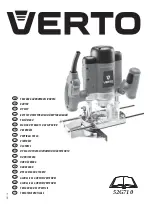
7-6
Cisco IE 3000 Switch Software Configuration Guide
OL-13018-03
Chapter 7 Clustering Switches
Planning a Switch Cluster
Discovery Through Non-CDP-Capable and Noncluster-Capable Devices
If a cluster command switch is connected to a
non-CDP-capable third-party hub
(such as a non-Cisco
hub), it can discover cluster-enabled devices connected to that third-party hub. However, if the cluster
command switch is connected to a
noncluster-capable Cisco device
, it cannot discover a cluster-enabled
device connected beyond the noncluster-capable Cisco device.
Figure 7-2
shows that the cluster command switch discovers the switch that is connected to a third-party
hub. However, the cluster command switch does not discover the switch that is connected to a
Catalyst 5000 switch.
Figure 7-2
Discovery Through Non-CDP-Capable and Noncluster-Capable Devices
Discovery Through Different VLANs
If the cluster command switch is a Catalyst 2970, Catalyst 3550, Catalyst 3560, or Catalyst 3750 switch,
the cluster can have cluster member switches in different VLANs. As cluster member switches, they
must be connected through at least one VLAN in common with the cluster command switch. The cluster
command switch in
Figure 7-3
has ports assigned to VLANs 9, 16, and 62 and therefore discovers the
switches in those VLANs. It does not discover the switch in VLAN 50. It also does not discover the
switch in VLAN 16 in the first column because the cluster command switch has no VLAN connectivity
to it.
Catalyst 2900 XL, Catalyst 2950, and Catalyst 3500 XL cluster member switches must be connected to
the cluster command switch through their management VLAN. For information about discovery through
management VLANs, see the
“Discovery Through Different Management VLANs” section on page 7-7
.
For more information about VLANs, see
Chapter 15, “Configuring VLANs.”
Comm
a
nd device
C
a
t
a
ly
s
t 5000
s
witch
(nonclu
s
ter-c
a
p
a
ble)
Third-p
a
rty hub
(non-CDP-c
a
p
a
ble)
C
a
ndid
a
te device
C
a
ndid
a
te device
89
3
77
















































